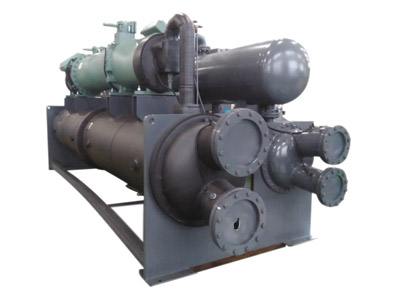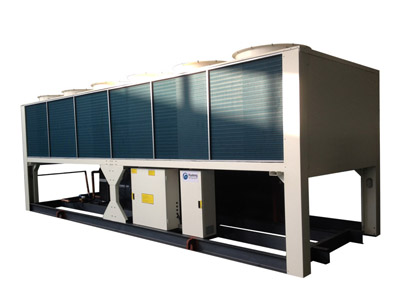Common Problems That Affect Chillers
A chiller is a machine that removes heat from a liquid coolant via a vapor-compression, adsorption refrigeration, or absorption refrigeration cycles. This liquid can then be circulated through a heat exchanger to cool equipment, or another process stream (such as air or process water). As a necessary by-product, refrigeration creates waste heat that must be exhausted to ambience, or for greater efficiency, recovered for heating purposes.
Where are water chillers used?
Chillers are used for a variety of purposes and are sometimes preferred over traditional split systems or packaging units because water conducts heat better than air. This is why water-cooled chillers are known for their more consistent performance, efficiency and longer service life than air-cooled chillers. Water-cooled chillers are commonly found in medium and large facilities (provided they have an adequate water supply) such as airports, hospitals, hotels, shopping malls, commercial buildings, etc. (attached picture: portable chiller)
Water Cooled Screw Chiller
Air-cooled chillers are more common in small to medium sized facilities where space and water may be limited. The cost of installing and maintaining these chillers is lower than that of water-cooled chillers, but they usually have a shorter service life. These chillers are often used in restaurants, companies and sporting events as well as temporary structures.
Chillers are also often used in industrial or medical applications. Assembly equipment, construction sites, lasers, MRI machines and a variety of other high-powered equipment and facilities may require chillers to maintain operating temperatures.
Common problems affecting water chillers
Corrosion
Chillers use metal tubing (usually made of copper or carbon steel) to transfer water between the chiller and the climate controlled space. The mere presence of oxygen in the water can cause corrosion, but the risk can be significantly reduced if the water and pipes are properly treated. However, if the water is not adequately treated, sediment, minerals and bacteria can enter the system. If sediment or bacteria build-up leads to different levels of oxidation, the metal will begin to corrode. In addition, any point where two different metals are used may be at risk of corrosion due to their different electrochemical properties. However corrosion occurs, it can lead to leaks which can damage the chiller, reduce its efficiency and potentially damage the area around the chiller.
Air Cooled Screw Chiller
Compressors for chillers
Poor maintenance
These complex machines require a great deal of maintenance to keep them in good working order. If proper measures are not taken, chillers can corrode, clog, lose efficiency or experience many other problems. For example, if proper water treatment is not carried out or open cooling towers are not cleaned, sediment or particles may enter the system, leading to blocked pipes and poor heat transfer. The condenser of an air-cooled chiller may become clogged or caked with debris, which can also reduce efficiency.
Electrical problems
The electrical systems within chillers are carefully designed to be as complex as the rest of the machine. They can easily be thrown out of balance by high voltage surges or wear and tear. If there is a grounding problem or a power failure, the chiller may detect this and shut itself down. Overloading the chiller may cause it to overheat and this may lead to a fault. Following repairs or neglect, wires and cables may become loose or damaged, which can lead to chiller failure.
We can help with your chiller problems
Several components of the chiller can fail and cause the whole system to malfunction, and the source may not always be clear. To deal with them properly, you may need expert advice.
For more information and consultation, contact us here!


评论
发表评论